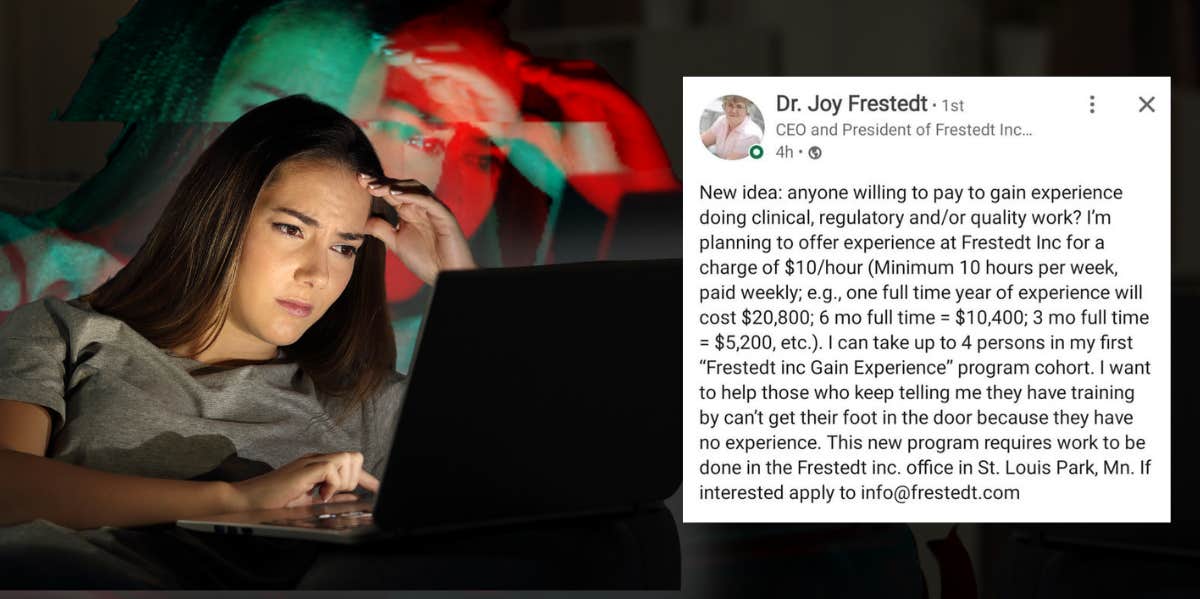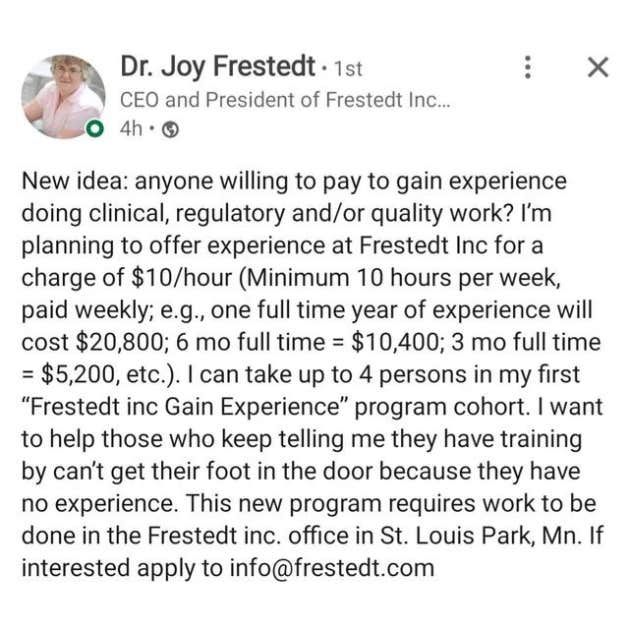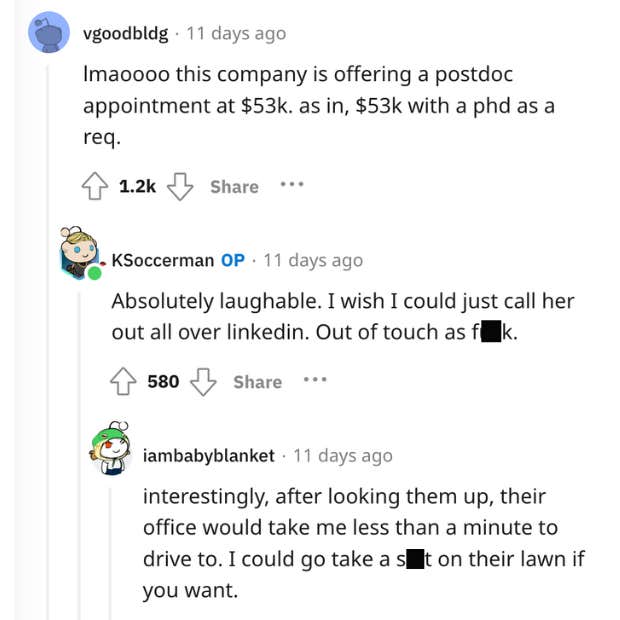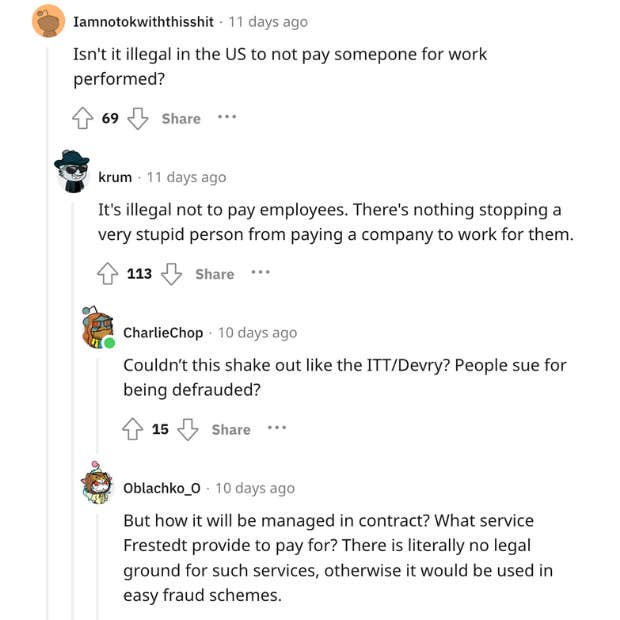CEO Shares Her 'New Idea' Of Charging $20K A Year To Work For Her To 'Help Get A Foot In The Door'
If you liked 'unpaid internships,' you'll absolutely LOVE 'pay me to work for me'!
 Antonio Guillem / Shutterstock; LinkedIn; Canva
Antonio Guillem / Shutterstock; LinkedIn; Canva It's no secret that getting a career started, in basically any field, is a herculean feat nowadays. One doctor on LinkedIn thought she had just the idea to help new graduates get their foot in the door. Her unorthodox approach to mentoring new talent definitely got people excited—but for all the wrong reasons.
A Minneapolis doctor and CEO proposed charging people to work for her to gain entry-level professional experience.
Dr. Joy Frestedt, a doctor whose company specializes in clinical trials, regulatory processes and other aspects of the medical industry, intended her proposal to address an all too common problem—you're just starting your career because you have no experience, but nobody will hire you for your first job because you have no experience.
 Photo: LinkedIn
Photo: LinkedIn
Frestedt proposed charging people $10 per hour to work for her with a 10-hour per week minimum.
"New idea," Frestedt's post begins, "anyone willing to pay to gain experience doing clinical, regulatory and/or quality work?" She then announced her plans to "charge $10" for the privilege of working for her company for a minimum of 10 hours a week.
Helpfully, she then tallied up just how much this would cost a person—"one full year of experience will cost $20,800; 6 [months] full time = $10,400; 3 [months] full time = $5,200 etc." Oh, is that all?! Frestedt went on to say she wants "to help those who keep telling me they have training [but] can't get a foot in the door because they have no experience."
That's certainly one way to approach the problem! Is it a good, or ethical, or reasonable way? Well, that's a whole other story. It's of course not unlike the good old-fashioned unpaid internship, but on steroids—you get taken advantage of and pay for the privilege.
And given how unpopular the unpaid internship is nowadays, with people all over the country calling for the practice's wholesale abolition because of its exploitative nature and favors the wealthy, you can probably guess how popular Frestedt's even worse idea was.
People online thought Frestedt's proposal was ridiculous and predatory, and many called it a 'scam.'
And one people started looking deeper into some of Frestedt's other business practices—like her low rates of pay for PhD-holding professionals in prestigious post-doc positions at her company—they only got angrier about her proposal.
 Photo: Reddit
Photo: Reddit
Some Redditors even proposed a targeted campaign to get Frestedt's business shut down, calling her a scam artist and suggesting they band together to "review bomb" her business with negative feedback on sites like LinkedIn and Google. Others wondered if what Frestedt was proposing was even legal—a valid question given the laws around internships, which Frestedt's scheme essentially is.
 Photo: Reddit
Photo: Reddit
In 2018, the Department of Labor changed its approach to unpaid internships by instituting what it calls a "primary beneficiary test" for internships at for-profit companies like Frestedt's. The test determines who is actually materially benefitting the most from the internship—the intern, or the company.
The standards essentially center on whether the work being done by the intern is similar to educational coursework they would undertake at school, and whether or not the intern's work would normally be done by a paid employee. If it's the company that is the "primary beneficiary" of the intern's labor, then the intern meets the definition of “employee” laid out in the Fair Labor Standards Act and the company must pay the intern accordingly.
Of course, as anyone who's interned in recent years will tell you, these rules are frequently evaded or go unenforced.
But still, given that Frestedt's wild plan essentially amounts to an internship in which people would perform actual labor in "clinical, regulatory and/or quality work" for which *they* would be required to pay *her*? Well, we're not lawyers, but let's just say it's not exactly a mystery why people online have used the word "scam" to describe Frestedt's proposal—nor is it surprising that she seems to have deleted her LinkedIn post entirely.
John Sundholm is a news and entertainment writer who covers pop culture, social justice and human interest topics.

